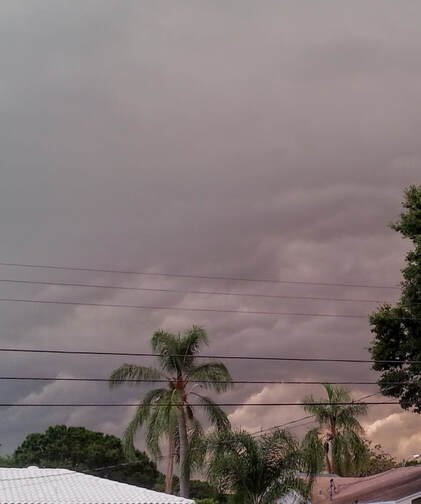 Storm is a good word for what happens to my brain when a story erupts. I'm a fourth generation Floridian, I grew up with storms, and heard stories of hurricanes past. I love and fear them, as I do story. I love reading and creating stories and I fear I'll never do the stories in my head justice. I just finished a book and passed it to my agent. I'm letting go of the story world I've lived in for the last year, saying goodbye to the characters. Next week, my agent will submit the book to publishers, hoping to find a good fit. I've learned it's best to not waste energy on wondering if I did my best or expectations for its success. Instead, I focus on the next project. The idea for a new story came to me a while ago. I put it in a box. I lifted the lid every so often and peeked inside, but I didn't take it out of the box until last week. I listed all that I knew about the characters and their world. Then I shared it with my agent. She poked and prodded and asked lots of whys and what ifs. My husband and I walk every morning and for the last two days those whys and what ifs have fueled our steps. I walked over three miles yesterday, trying to figure out where a boy named Ash came from and why a girl named Roan was allowed in the woods. The answers to those questions lead to more questions. They twist and churn into a tornado. Soon, I hope, the beginning will pop out of that storm. It's a magical moment when the main character takes her first steps on a clean page, and she brings a steady rain of words to fill the pages after. I pray they're the right words to describe the storm in my head.
0 Comments
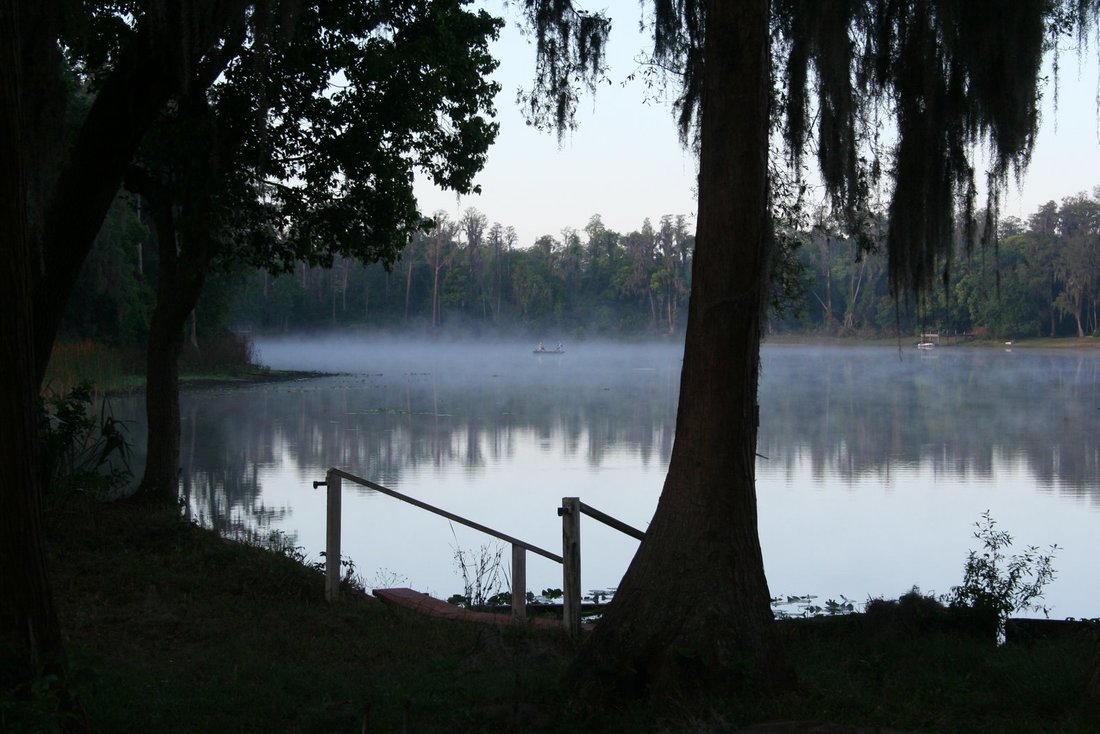 It's been months since I've visited my blog. For years I've blogged and enjoyed Facebook friends, while I avoided the rest of social media. But when I signed with an agent earlier this year, I felt compelled to have a greater online presence. Editors look at a writer's online network when they consider books. I understand. Authors need to sell books or no one in the industry thrives. Today, selling books relies on the internet. So, I opened Twitter and Instagram accounts and expanded my Facebook friends. At first, it was fun searching for friends and people I admire to follow. In the children's book world, everyone is entertaining. Tweets would pop up that I had to share and photos I had to respond to. I'd see something on Facebook that led to a link that led to more time away from writing which let's face it, is the point. It wasn't long before I was overwhelmed by rapid-fire Tweets, photos and Facebook posts. I tried spending fifteen minutes a day on each venue. I tried saving social media for nighttime. When I did pause to think about my blog, I didn't have the energy or the focus to compose anything. My agent said, choose one social media outlet, the one that suits you best, and let the others go. I'm an artist. My writing is full of imagery. She thought Instagram might be the perfect fit. But I don't carry my phone everywhere and even when I do, I don't think about taking pictures. For the sake of Instagram, I tried. I've had the account for months and there's maybe a dozen pictures on there, none of them worth an audience. At some point, I realized I missed this blog. Even if no one read it, it was a quiet place for me to align my thoughts. After conferences and workshops, it gave me a space to analyze what I'd learned. When something profound affected me as an artist and writer, I shared it here. I know there are a gazillion bloggers doing the same thing and this may never attract a single book buyer. But this week, an email landed in my inbox announcing a new writer named Angela had responded to an old post. She related to my experience. That felt more meaningful than all the Tweets and photos. It brought me back here. It made thoughts come out of my head and words land on this page. I don't know how often I'll post, but I'm not ready to give up this blog. I need this quiet place within the internet madness. I know all writers struggle to find the balance between creating books, networking and promotion. Someday, I hope to find a balance that works for me. 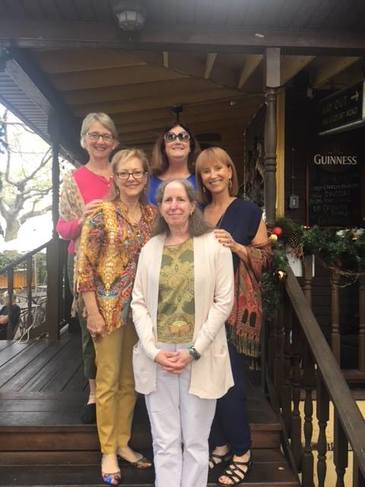 The Skyway Writers The Skyway Writers I'm a world-class introvert who, except for college, has been perfectly happy creating art by myself without a soul intervening. But the day I realized I wanted to write books for children, I went looking for people with the same goal. I needed to learn and I wasn't prepared to go into debt for an MFA. So I joined the Society of Children's Writers and Illustrators and found a local critique group. That was ten years ago. Not only did I discover writers who were willing to share their knowledge and experience, I found people who accepted and supported me. My critique partners, the Skyway Writers, are committed, compassionate women. We're as dedicated to helping each other succeed as we are to achieving our own goals. We share our stories, our hopes, our devastation over hurtful book reviews, or agents and editors who pass on our projects. As our knowledge evolves, our writing grows stronger through honest, intensive feedback. Today, I consider these women great friends and I can't imagine writing without them. Bolstered by my critique group experience, I fought my reclusive tendencies and dragged myself to SCBWI events. Here in Florida, we have an amazing community of writers. For many years, writing teacher and picture book author, Rob Sanders organized local SCBWI workshops and presentations. No introvert stands a chance when confronted with Rob's charm. He has a smile as warm as Texas and a passion for helping writers achieve their goals. He has now passed his local responsibilities to writing coach Bob Schwartz, but Rob hasn't stopped encouraging writers. At the state level, Florida's Regional SCBWI Advisor, Linda Bernfeld, works year round with a host of dedicated volunteers to support writers. They orchestrate two conferences, gathering some of the publishing industry's best and brightest to teach and inspire Florida writers. Florida SCBWI also provides mentoring opportunities, a website and newsletter, a statewide boot camp, an annual writing contest and a growing list of critique groups. If you visit a conference, you'll see Linda and her team, racing here and there, making sure writers and presenters have what they need. They come to those conferences, determined to make writers' dreams come true. From the start, everyone, and I mean everyone, has been kind and friendly. I'm not sure what it is about children's writers, but if you sit next to one, you've likely made a friend for life. Some are shy like me, some outgoing and engaging. But they all scoot over to welcome new members. And that feeling isn't contained to Florida. SCBWI President Stephen Mooser answers emails as if he's sitting across from you, sipping tea. He and Executive Director Lin Oliver, travel from their homes in California to teach and inspire at our conferences. They offer a fantastic yearly grant contest, opportunities for members to publish articles, poems and illustrations in their magazine The Bulletin, and a place to interact, ask questions, find and form groups on their website. But even with that army of goodwill permeating a decade of SCBWI membership, the child inside me who moved too many times to make friends, hesitated to believe I belonged. Until two weeks ago. It was the weekend of the SCBWI conference in Miami where the results for Florida's 2018 Rising Kite writing contest would be announced. I wasn't able to attend, but encouraged by writing partner Augusta Scattergood, I entered my middle grade book in the contest. Sunday afternoon, my phone pinged. Fellow Skyway writer Teddie Aggeles texted "Look at your email!" I did. There in my inbox was a message from two more Skyway Writers, JC Kato and Janet McLaughlan. They were at the conference, cheering and accepting my award for first place in middle grade fiction. My phone pinged again and I pulled up Facebook to see a photo and congratulations from author/illustrator Fred Koehler: More cheers followed, many, many cheers, from people I knew and people I didn't. I cried happy tears off and on all afternoon. Winning was a great honor and a thrill, but it wasn't the award that overwhelmed me. It was the kindness and love from writing friends. It went straight to my heart and broke that rusty, old lock that chained me to the belief I didn't belong. So, thank you Rob and Dorian Cirrone, for your special efforts to support this reticent writer. Thank you Janet and JC, for cheering my win, accepting my award and pitching my book to an agent. You are the most awesome writing pals. Thank you Fred and Teddie for elevating my Sunday afternoon by announcing my win. Thank you Augusta for always, always encouraging writers to reach for the dream. And last, but in no way least, thank you Linda, Dorian, Linda Shute, your brigade of volunteers and every person who scoots over to make room for shy people. You are a powerful force for good in this world.
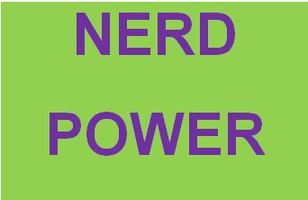 This post introduces my blog's new venture, LikeWise. Once a month, LikeWise will feature places where like-minded creative teens can connect. I hope throughout the year to offer an eclectic mix of programs, some known and others more obscure. I'm starting with a big one. By now, most people on the planet know of John Green, the contemporary YA author who wrote The Fault in Our Stars (recently made into a movie) and Paper Towns (movie soon to follow). And many will have heard of John's brother Hank who helped form the Nerdfighters website. Together, they have created an army of dynamic fans. Nerdfighters is "A place where nerds gather to play. We fight to increase awesome and decrease suck." Nerdfighters is like a warehouse full of rooms for creative brains. Behind every door, there's an invitation to join in a project or discussion or intriguing challenge. Like collaborative YouTube videos and almost 3000 Nerdfighter subgroups (writers, poets, artists, readers, Iowans, no kidding, Iowans). Once a week, The Art Assignment (produced by PBS) introduces artists from around the country who present assignments. The Sci Show features short, funny videos that inform about everything science, and Crash Course teaches history, anatomy, astronomy and politics. See what I mean? Doors galore! John and Hank Green used YouTube to unite and ignite a community of creative young minds. Nerdfighters is a powerful force making positive changes in the world. Every year, the Project for Awesome raises money for worthy causes. Last December over one million dollars was donated! It's hard to imagine what the Green brothers will do next. This month, Hank interviewed President Obama and he included fan's questions. Their voices were heard by an ever-expanding online audience. Artists, writers and readers spend a lot of time alone with our passions. But that doesn't mean we can't also be part of a community.  Where's your favorite place to create? In your room at an easel or desk, on your bed or the floor? On a comfortable limb in a climbing tree, or underneath it, a sturdy trunk at your back? To your left is the desk where I write. I didn't use to be this messy. When my work was drawing and painting, my studio was tidied at the end of each day. Before stories took control of my life, dust bunnies didn't breed under my furniture and weeds didn't rule my yard. Now it takes a heroic effort to abandon my writing and focus on house or garden. And often, as I'm herding dust bunnies, the characters in my head demand I leave the dust and pick up a notebook. If I'm away from my computer for too long, I start feeling twitchy. When I was a child, I'd create anywhere. Give me a crayon or pencil and scrap of paper, I'd draw and draw and draw. Busy restaurants, parades, grown-up parties, I didn't notice. I was one with my art. Then as I neared teenagerdom, I craved privacy. I drew in my room, on the bed or floor. But now the whole house is mine. It relies on me to keep it safe from dust and grime. My yard hopes I'll protect it from weeds and strangling vines. My husband hopes I'll remember to feed him and wash his clothes. The dogs don't hope anything. They never let me forget them for one second of the day. I need my room at the back of the house where writing happens. Dogs are allowed but husband knows to tiptoe in the door and if my fingers are madly typing, he tiptoes out again. While the story streams from my mind to the keyboard, things pile up on my desk: books, manuscripts, notebooks, favorite birthday cards, photos of people I'd like to see more, and paper scraps where I jot important things. I've tried to fight the clutter. It returns within days. In fact, this post was meant to be about Spring cleaning. Alas, my desk still looks like the photo and it was taken weeks ago. Truth is, a clean desk isn't important. Claiming your space is. Wherever you live, respect your needs as an artist and writer. Find the place and conditions that work best for you. Make time in every day, hunker down in that space and create. And if someone is screaming at you to clean up your room, draw the dust bunnies first! A friend recently shared her disappointment over a loved one's lackluster response to a piece of her writing published in a literary journal. I understand her angst. A few years ago, I shared a story I was very proud of with friends and I was bewildered by their reaction. They seemed to have a hard time finishing the story, as if they were bored. Later, when that story won a contest, they asked, "what story was that?" They didn't even remember it.
My writer friend's experience made me wonder why normally kind, considerate people who clearly love us, respond insensitively to our writing. I tried to sit where they sat when they read those stories. First, none of them are writers. They have no idea how much a writer sweats over a piece. They can't envision the excitement at the start of a story, the anxiety waiting for feedback when it's finished and the grueling hours of revision. They haven't watched their email or snail mail for responses to submissions, cried over rejections and squealed when they read: We'd like to buy your story. When non-writers read our work, they compare it to polished, published pieces. And not just any published piece. People read discriminately. They put down what they don't enjoy and tastes vary widely. I have friends who read nothing but non fiction, others who favor only one genre. Most of my friends are older and have no reason to read children's books. So, I imagine when I handed them a story meant for ages eight to twelve, they were also bewildered. How could they connect to a twelve-year-old protagonist's point of view or care that her conflict was successfully resolved in 750 words? I don't share my writing with non-writers anymore unless someone asks (except for my husband, bless him!). It's kinder for all concerned. I do share my successes but I've tempered my expectations. Only writers can fully relate to this journey.  We writers spend so much time alone with our story characters, we feel awkward in the presence of humans. Despite our insecurities, we attend conferences and critique groups, partly to ease our craving for social contact. I believe most writers benefit from peer support, especially when they're submitting and facing those confidence-crippling rejections. I have several friends who are submitting manuscripts to various venues, some without the support of critique groups. I feel for them and it makes me even more grateful for my group. For me, nothing beats a physical group, the sincere advice, sympathetic coos and enthusiastic cheers offered in person. But when I submit, my insecurity rises to atomic level and I need additional support. Two children's writer's venues I've found extremely useful are the Verla Kay and Society of Childrens Book Writers and Illustrators' discussion boards. On Verla Kay, members can post questions in threads covering topics like genre, marketing, and craft. VKers helped me shape an agent-worthy query and while I waited, I researched query response time on their agent list. Some VK members are published authors who generously share their experience. Once, I was thrilled when Maggie Stiefvater answered my question and that was after she'd became a YA fantasy star. SCBWI offers a similar discussion venue but you must be a paid member to participate. Most serious children's writers join the organization which has been the hub of my writing community, supporting regional critique groups and conferences. SCBWI's website provides helpful resources for beginning writers and grant opportunities. Writers use the discussion board to form physical and online critique groups, network, inform and learn. When I sold my first story, I sought clarification on contract terms and received a helpful response from a legal expert on SCBWI. I'm sure there are other valuable websites dedicated to the children's writing community. The best thing about virtual venues is showing up just as you are and not worrying about bed hair or that coffee stain on your shirt. I've found the online writing community kind and encouraging, so no excuses, come out of your cave, turn on the computer and click! I've entered the second week of the sixteen-week dummy book challenge on kidlitart. We started last week by brainstorming story ideas. I already knew my subject, a terrier puppy, but what was she up to in this picture book? I envisoned her leaving her mother and going to a new home. How would she deal with it? What was her goal and what obstacles would she overcome in roughly twenty-eight pages, 500 words or less? During the week, I ran ideas past my husband and eventually, the story jelled.
Our assignment this week is to create the first draft so yesterday, I siphoned the story from my head through computer keys to a file. But the visual part of me wasn't satisfied with that and I'm betting I wasn't the only artist crafting scenes in my head. Tomorrow, I'll start thumbnail sketches. I'd like to have a rough storyboard to present for critique next week . . . if I'm accepted back to the PB&J group. I'm still waiting to hear. There's a tiny person pacing in my head! I sent the request last week when PB&Jers were preparing to leave for the SCBWI conference in Miami. Not the best timing. Rob Sanders, the group leader is posting about the event all week on his blog, Picture This! He's a fantastic motivator, never failing to inspire and lift spirits. It's good to start the year with a new project. Your mind hums with possibilities . . . that the story will blossom and the sketches turn into memorable art. That phrase "Don't get your hopes up" was never meant for writers. Writers hope every story they start will soar. Unpublished writers hope agents and editors will see the potential in their books. Published writers hope readers will love their characters and get lost in their stories. I hope for the confidence to finish this book. |
AuthorI write middle grade and young adult books with a magical twist, and I'm represented by the fabulous Leslie Zampetti at Open Book Literary. Writer Websites
Augusta Scattergood Maggie Stiefvater Rob Sanders Fred Koehler JC Kato Sarah Aronson Kelly Barnhill Linda Urban Kate DiCamillo Jacqueline Woodson Helpful Links SCBWI Agent Query Lorin Oberweger - Freelance Editor Search BlogArchives
May 2020
Categories
All
|
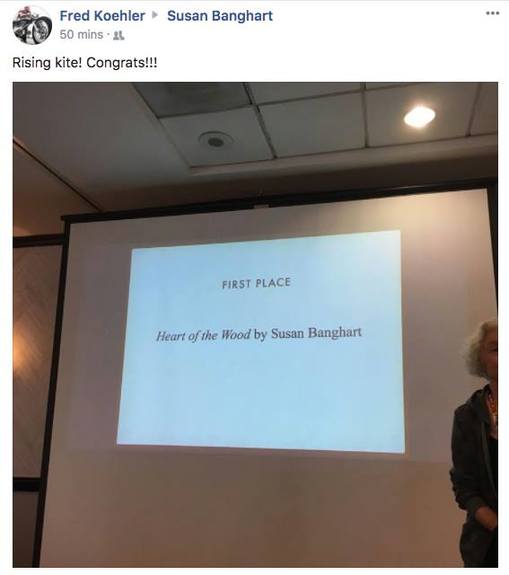
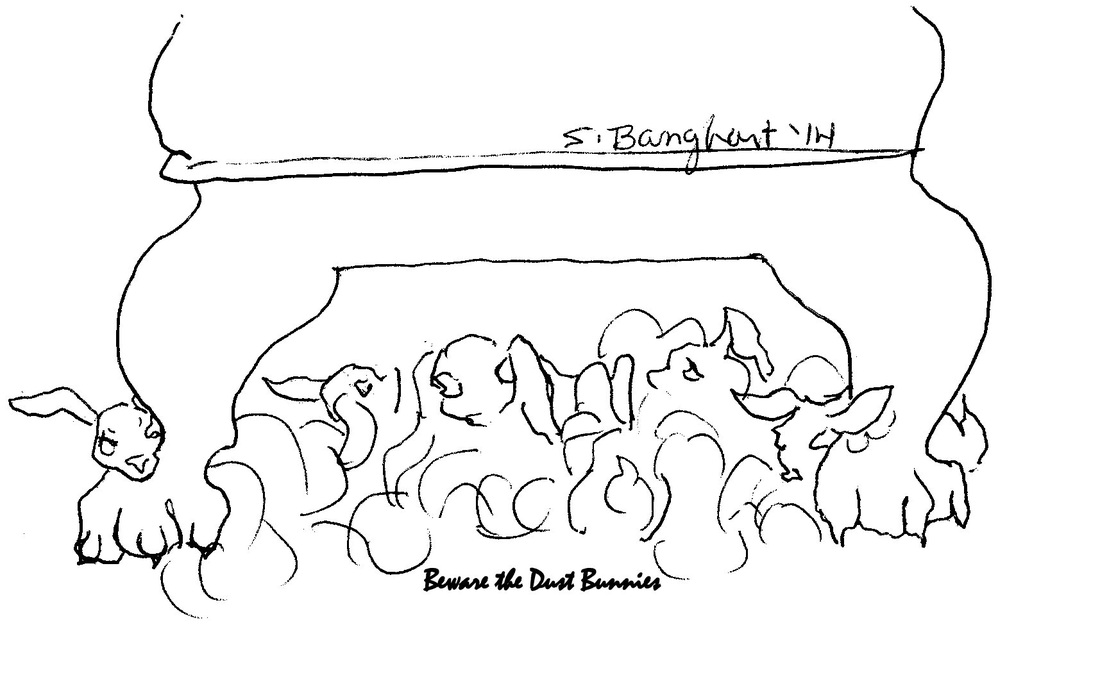
 RSS Feed
RSS Feed
